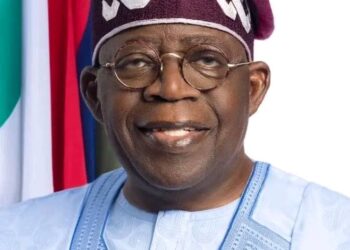By Ahmed Yusuf Nasir
How time flies! On June 8, 2016, it would be 18 years since the death of former Head of State, General Sani Abacha. Despite his concrete achievements, Abacha’s memory always comes under vicious vilification from the so-called pro-democracy agitators of June 12,1993.
We cannot let Abacha’s record to the interpretation of his hardened political enemies, such as Professor Wole Soyinka, who alleged that Abacha had no “redeeming virtues” as if the Nobellaureate has no imperfections of his own. Abacha represents different things to different people. To his political enemies, especially the former members of the National Democratic Coalition (NADECO), he was the “worst disaster” to befall Nigeria. But to objective Nigerians, Abacha was one of the most unfairly reviled and misunderstood Nigerian leaders. The verdict of history may always be distorted or mutilated if it is written by one’s enemies. Therefore, my duty as an objective observer of political events in Nigeria is to set the record straight.
Whenever the June 12 anniversary is being celebrated, Abacha’s enemies hijack the event to pour unprintable insults on his memory and deliberately playing down his positive contributions to Nigeria during his tenure. This is gross injustice. Despite all the unimaginable evils attributed to Abacha, his implementation of development projects was quite credible. When General Abacha took over on November17, 1993, Nigeria’s foreign reserve was around $4bn but he jerked it to $10bn. And this was achieved, despite the fact that his political enemies branded him a disaster.
Abacha‘s management of the proceeds of petroleum subsidy withdrawal was more credible and result-oriented than other subsidy withdrawal policies in the country. Although Abacha increased fuel price to N20 per litre, he produced more results than other governments that came before him or after him. For example, the former Obasanjo administration increased fuel price to N75 per litre but it didn’t make the remarkable positive impact made by PTF under Abacha. The Petroleum Trust Fund established by Abacha was huge success becoming a reference point. With only N60bn allocations, the PTF achieved great results that disarmed Abacha’s political enemies.
Corruption, greed and lack of transparency in the civil service had contributed to the poor execution of public projects. Headed by General Muhammadu Buhari, the PTF didn’t allow the typical corruption that pervades the civil service to undermine the execution of public projects.
Many Nigerians found it incredible that the PTF could have achieved such impressive results with only N60bn allocation throughout the duration of its brief operation. Huge expenditure of money alone is not enough without honesty on the part of those entrusted with public funds to execute projects. In 2001, former President Obasanjo admitted he was ashamed of the conditions of federal roads.
This was at a time the Federal Ministry of Works was allocated N350bn. The PTF was allocated only N100bn throughout its entire existence which is a drop in the ocean compared with N350bn allocated to the Ministry of Works under Obasanjo. Yet, PTF achieved more results with less allocation.
The transformation achieved by PTF was unprecedented. Government ministries launched sustained propaganda against the PTF because the civil servants saw it as a threat to their corrupt advantages.
With the hostility of civil servants against it, and with Obasanjo opposed to anything initiated by Abacha, the PTF was ultimately scrapped when Obasanjo was elected President in 1999. As a result of that shortsighted decision to scrap PTF, Nigeria found itself back to the corruption that had underlined the successful execution of public projects. With the collapse of public infrastructure and poor quality social services that came after Abacha, Nigerians found themselves coming to terms with the fact that the General’s achievement are by far greater than his perceived shortcomings. Blinded by inveterate hate and prejudice, Abacha’s enemies would always pretend not to remember that the current railway rehabilitation, the National Hospital, the Gwarinpa Housing project, to mention a few, were the outcomes of Abacha’s development strides.
How many houses did Obasanjo build for Nigerians? How many roads, schools and hospitals did his self-righteous government construct for Nigerians? Instead of building more houses, Obasanjo was selling the houses he didn’t build. His anti-corruption crusade was a charade. Corruption grew like weed under his nose, but he was more interested in receiving the Abacha loot, which was re-looted. Admire him or loathe him, you must give Abacha credit for the good things he did for Nigerians.
On Abiola’s unfortunate death, the naivety and miscalculation of the former NADECO leaders was responsible for his tragic demise. Abacha offered bail to Abiola in 1995, but the so-called pro-democracy agitators asked him to reject the bail offer from Abacha. In fact, Abiola’s eldest son, Kola, was so angry with NADECO’s naivety for rejecting the bail offer that he went to court, seeking to fire his father’s lawyer, late G.O.K. Ajayi, who was appointed by Kudirat
Abiola. No thanks to their miscalculation, Abiola died an avoidable death. General Abacha would not have pressed ahead with the prosecution of Abiola if he had accepted the bail offer. NADECO leaders misled him and, on that account, they bear moral responsibility for his avoidable death.
Nasir, an economic and development analyst, wrote from 74, Aminu Kano Crescent, Wuse 11, Abuja. Email: [email protected]



